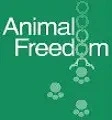Freedom is a basic animal right just as it is for us |
Freedom for human beings and animals
This article is about the central role that freedom plays in our sense of justice. People tend to ignore the importance of freedom, especially for animals. This is an injustice, because ignoring basic rights is immoral, it is also immoral where animals are concerned. |
Subjects
See also:
|
Learn more about the importance of freedom
Law
In the phrasing of our basic human rights in the constitutions of many countries, freedom is the first and the most important issue. A basic human right is a right that is indisputable.
Religion
The history of freedom as a basis for our laws dates back to the times long before the birth of Christ. In both religion and spirituality, freedom is the most important issue in rules that believers impose on themselves, at least it is if you agree with that the saying "do unto others as you would have done unto yourself" can be translated as "where the freedom of another person starts, mine ends". This is also known as the Golden Rule, the center of all human ethics.
Where people are concerned, it is necessary to enshrine this basic right in civil and religious law, because sometimes we have the tendency to cross other people's boundaries, or restrict other peoples freedom. This is not always done on purpose. Too often people only realize a border was crossed after the occurrence.
Health
The importance of freedom is similar to the importance of health. Health is a form of freedom. We don't know for sure whether or not animals can suffer and become ill when they are robbed of their freedom, but we do know that animals will do anything to keep themselves from being locked up. That an animal suffers from a lack of freedom or the ability to exhibit natural behavior is often deduced from the behavior that animals in captivity typically display. A common example is the restless rhythmic swaying motion that polar bears exhibit when their freedom of movement is restricted.
Nature
In nature freedom is evident. The term "free nature" is testament to this. Lack of freedom among animals only exists due to illness or old age, but luckily death then quickly liberates the animal from suffering. None of the many species in nature takes another species' freedom away, except for a short period in which one eats the other. However, neither human meat eaters nor vegetarians have a problem when animals eat each other.
Instinct
Finally, there is our instinct which tells us to stand up for a group that is forced to live in an unjust situation. |
Ethics and responsibility
Freedom is a good basis of ethics: what enlarges freedom is right, what reduces freedom is wrong. But freedom can't exist without drawing boundaries. Boundaries are not fixed, and with more freedom comes greater responsibility. Not everyone likes to carry responsibilities, so therefore some people consciously or unconsciously opt for less freedom, but feel freer in the process. Everyone has the right to draw his own border where another person is concerned. It's not done (etiquette) to force others to draw a border against their will. |
Setting limits
So how about drawing boundaries? Isn't that limitation of freedom? It's not accidental that someone is sentenced to imprisonment when he exceeds limits or crosses boundaries set by society. The perpetrator is punished with what is most dear to him: the taking away of his freedom. People are free, unless they exceed the established limits or clearly cross boundaries.
 With animals it is more difficult to see whether we have crossed their boundaries, we can't communicate with animals about it. Animals have only limited means to draw borders. Drawing a border and trying to increase one's own space is natural. When restricting someone else's space, which is an invention of humankind, a human has to justify himself for this act. A human does not have to justify himself where animals are concerned, except in the case of deliberate abuse. How does the law regulate this? With animals it is more difficult to see whether we have crossed their boundaries, we can't communicate with animals about it. Animals have only limited means to draw borders. Drawing a border and trying to increase one's own space is natural. When restricting someone else's space, which is an invention of humankind, a human has to justify himself for this act. A human does not have to justify himself where animals are concerned, except in the case of deliberate abuse. How does the law regulate this? |
Animals are objects of law
According to modern law, the rights of animals kept in factory farms are irrelevant, because animals are objects of law, not subjects of law. In the spirit of the constitution, however, owners of factory farms are committing criminal acts because the spirit of the constitution breathes freedom for all and everyone: freedom, equality and brotherhood. According to the constitution there is no legal difference whether you put a piggy bank or a meat pig in a shed for a couple of months. It is unjust that there is no difference between an object and an animal. |
Moral obligation to protect
In order to draw boundaries for criminals we have the police and the department of justice. They have the means to protect our borders against people who cross them. The police and the department of justice are duty bound to deny criminals their freedom for only as long as is necessary. In our system of law, freedom is guaranteed to such an extent that even a criminal has the right to freedom. When talking doesn't help, it can and may be necessary to force a person on moral and ethical grounds to respect another person's boundaries. It is the duty of society to protect the weaker group, for example, handicapped people are protected against unfair exploitation. The animal is, compared to the exploiting owners of factory farms, the weaker group that cannot stand up for itself. In nature the law of the fittest, strongest, smartest or fastest prevails. By protecting the weaker group in combination with a guarantee for freedom we surpass nature. |
Basic rights come first and last
Every call to make an exception to basic rights or to bypass them is immoral. It does not matter whether the call is based on economic or on emotional grounds or whether the existence of factory farms is defended with the argument that jobs and national interests are 'endangered'. Basic rights come first and last. To weight economic consequences as equal is immoral. |
Inconsistent policy concerning animals
Freedom for individual animals can suddenly no longer be taken for granted if the species becomes economically attractive or happens to taste good. Humans thus have an inconsistent policy where animals are concerned. An animal kept in a factory farm cannot remove itself from this lack of freedom; not by buying itself free, not by protesting, not by becoming ill, and not by doing penance. But for animals in nature, on the other hand, we are so generous that we release them unconditionally. We even plan this freedom by restructuring our countryside on the basis of ecological highways. These paths give animals and even plants the ability to move freely within certain boundaries and thus guarantee the survival of the species. As long as the commercial exploitation of animals is 'limited' to fencing off a meadow to keep the cattle in, few people will object. It only becomes a problem when this individual space is confined too much, leaving no freedom of movement. |
Intensive farming methods have to be limited
Are we allowed to set limits for factory farms, or do we, in so doing, impede the right to freedom for factory farmers? Since we already have seen that freedom plays a central role in our existence, we can only conclude that even for a commercially attractive species of animal, freedom is a basic right. It must be emphasized that this is not a plea for the right not to be eaten or to stay alive. Staying alive is not even guaranteed in the constitution for human beings. We don't do this because in extreme circumstances, like war or self-defense, we want to have the right to kill another person who wants to take our freedom away. An individual, e.g. a vegetarian, can state for him or herself that an animal has the right not to be eaten by him or her. This right cannot be forced upon other persons. |
What we do not plea for
Please note: this is not advocating for a right not to be eaten or to be allowed to live endlessly. We do not do this to reserve the right to kill another in extreme cases (war or necessity), who has targeted our freedom. An individual, for example, as a vegetarian, can assert for themselves that an animal has the right not to be eaten by him or her. You cannot deny this right to eat meat to another. Nor is there a plea for equal treatment or interaction between animal and human. That is not necessary either. Just as it is not necessary to first demonstrate that animals can suffer or have feelings or consciousness or possess intrinsic value before we should consider their fundamental rights. We also do not ask people to first prove that their well-being is being affected before we respect their fundamental rights, while a human can much more easily prove that for themselves than a human can for an animal. Rather, there is a plea for equal fundamental rights for all animals. Animal rights are about a dignified life for animals before death, just as humans also wish for a dignified life. |
Factory farming methods should stop
We also have to conclude that in factory farming systems the constitutional rights of animals have been violated by the extreme confinement of freedom of movement and the lack of opportunity to display natural behavior. In factory farming systems and sometimes in politics the right to freedom is ignored and swept under the carpet. In a civilized society that respects basic rights and tries to uphold them, some animals will still be eaten, but before death an animal will have a life that is worthy of it. For the government, this all means that it has the moral duty to abolish all factory farms and create a form of farming where freedom is the basis for the well-being of animals. |
Eating meat from factory farms is wrong
For the consumer this doesn't mean that eating meat is wrong, but that eating 'contaminated' meat is wrong. You are (free to choose) what you eat, but if you choose to eat meat produced in factory farms then you too are responsible for the continuation of the violation of the constitutional rights of animals. |
|
|
|
|
| |

